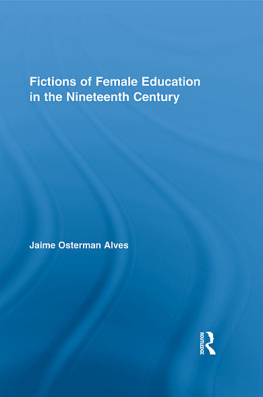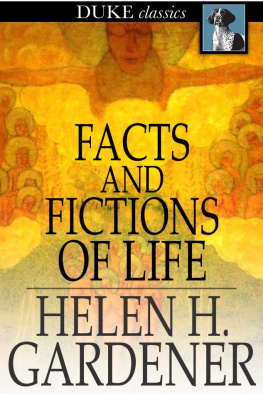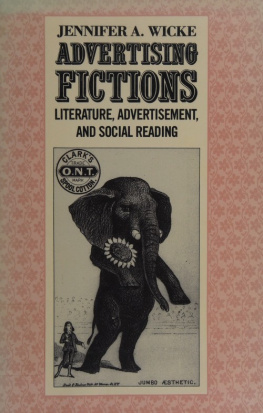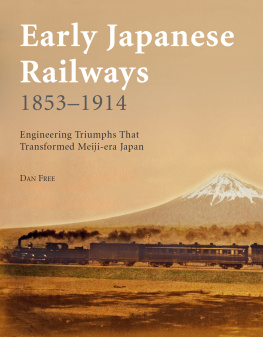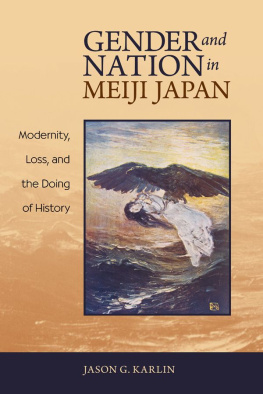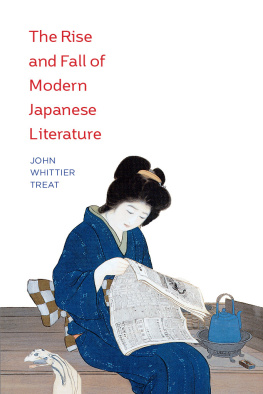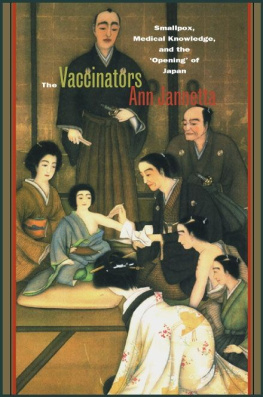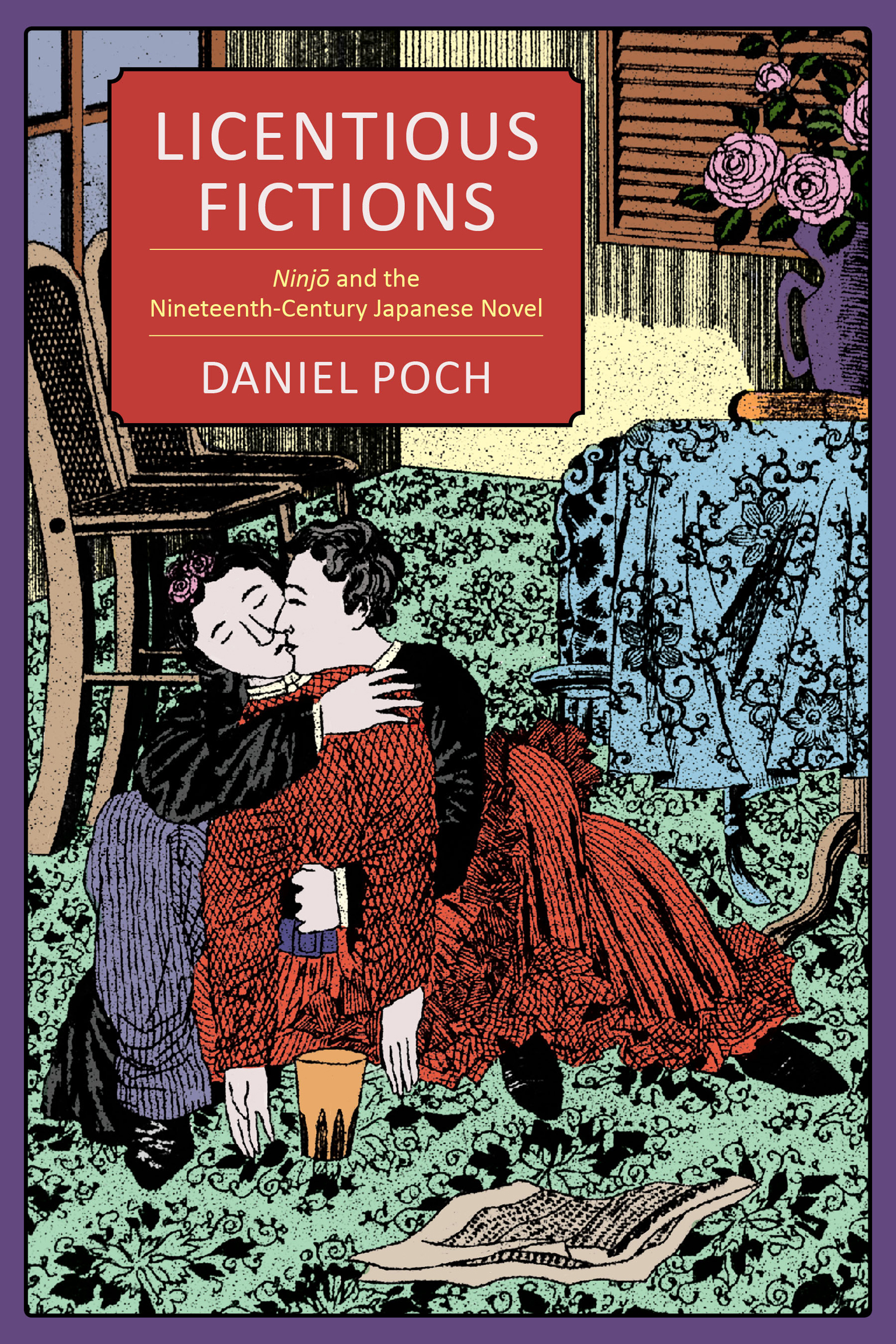Contents
Guide
Pagebreaks of the print version
LICENTIOUS FICTIONS
Licentious Fictions
NINJ AND THE NINETEENTH-CENTURY
JAPANESE NOVEL

Daniel Poch

Columbia University Press
New York
Columbia University Press wishes to express its appreciation for assistance given by the Wm. Theodore de Bary Fund in the publication of this book.
Columbia University Press
Publishers Since 1893
New York Chichester, West Sussex
cup.columbia.edu
Copyright 2020 Columbia University Press
All rights reserved
E-ISBN 978-0-231-55046-8
Library of Congress Cataloging-in-Publication Data
Names: Poch, Daniel (Daniel Taro), author.
Title: Licentious fictions : ninj and the nineteenth-century Japanese novel / Daniel Poch.
Other titles: Ethics of emotion in nineteenth-century Japanese literature
Description: New York : Columbia University Press, [2020] | Revised and expanded version of the authors thesis (doctoral)Columbia University, 2014 titled Ethics of emotion in nineteenth-century Japanese literature : Shunsui, Bakin, the political novel, Shy, Sseki. | Includes bibliographical references and index.
Identifiers: LCCN 2019018560 (print) | LCCN 2019981050 (ebook) | ISBN 9780231193702 (cloth)
Subjects: LCSH: Japanese fiction19th centuryHistory and criticism. | Emotions in literature. | Ethics in literature.
Classification: LCC PL747.53.E36 P63 2020 (print) | LCC PL747.53.E36 (ebook) | DDC 895.63/3093538dc23
LC record available at https://lccn.loc.gov/2019018560
LC ebook record available at https://lccn.loc.gov/2019981050
A Columbia University Press E-book.
CUP would be pleased to hear about your reading experience with this e-book at .
Cover design: Milenda Nan Ok Lee
Cover art: Image based on black-and-white illustration from chapter 6 of sh kiji: Kary shunwa (illustrator unknown; published by Sakagami Hanshichi in Tokyo, 1878). Courtesy of Waseda University Library.
CONTENTS
Completing this book would not have been possible without the help of many individuals and institutions. My greatest debt of gratitude goes to Haruo Shirane and Tomi Suzuki. Without their unconditional support over many years, too great to capture in words, this project would never have materialized, from its initial conception to its publication in these pages. I thank them for their unstinting advice, patience, energy, and trustfor providing me with an ideal mentorship that I consider myself extremely fortunate to have received. I am also deeply thankful to David Lurie and Satoru Saito for their incisive feedback. Their detailed comments and advice were invaluable in my revision process. I am greatly indebted as well to Nan Ma Hartmann, Christina Yi, and Tom Gaubatz for reading my entire manuscript and providing detailed and helpful feedback.
I would like to express my heartfelt gratitude to Toeda Hirokazu and Ikezawa Ichir for graciously facilitating longer stays of research at Waseda University, Tokyo, at different stages of my project. Both Professor Toeda and Professor Ikezawa were wonderful hosts and warm mentors to me. My research and writing would not have been possible without generous financial support from Columbia University, Waseda University, the Canon Foundation in Europe, the Japan Foundation, the Japan Society for the Promotion of Science, and a General Research FundEarly Career Scheme grant awarded by the Research Grants Council of Hong Kong. The University of Hong Kong also provided generous funding for my research and the publication of this book.
I would like to thank my former mentor at the University of Heidelberg, Wolfgang Schamoni, whose scholarship and careful training in reading Japanese literary texts initially enabled me to embark on the future study and research culminating in this monograph. I am also grateful to the following scholars for their insightful advice, encouragement, questions, or invitations to present my work: David Atherton, Rebecca Copeland, Wiebke Denecke, Bettina Gramlich-Oka, Irmela Hijiya-Kirschnereit, Ken K. Ito, Su Yun Kim, Kno Kimiko, Haiyan Lee, Munakata Kazushige, Sait Mareshi, Jan Schmidt, Ariel Stilerman, Shiho Takai, J. Keith Vincent, Jeremy A. Yellen, and Eve Zimmerman. I am also thankful to Pau Pitarch Fernndez, Jenny Guest, Matthew Mewhinney, Arthur Mitchell, Nate Shockey, Charles Woolley, Hitomi Yoshio, and Chi Zhang. I would like to thank my colleagues at the University of Hong Kong, who provided me with a supportive environment for research and teaching. I would like to name in particular Adam Jaworski, Kendall A. Johnson, Charles Schencking, and my colleagues in the Department of Japanese Studies Janet Borland, Timothy Unverzagt Goddard, Yoshiko Nakano, Izumi Nakayama, Victor E. Teo, and Daniel Trambaiolo. I am grateful to the University of Hong Kong for allowing me to take the research leave necessary for writing this book, and my special thanks go to Derek Collins, the dean of the Faculty of Arts, for his support.
At Columbia University Press, Christine Dunbar and Christian Winting provided professional and always gracious support throughout the publication process. I am also grateful to Leslie Kriesel and to Mike Ashby for their meticulous help in copyediting the manuscript. I am indebted to Angelo Yeuk Wong for his careful proofreading of my translations and references. I thank Anne Holmes and Rob Rudnick for creating the index. Many thanks also go to Milenda Nan Ok Lee for designing the wonderful book cover. Last but not least, the feedback, criticism, and advice of my three anonymous reviewers were tremendously important in tackling the final revisions. I also thank them for pointing out embarrassing mistakes in the manuscript. Needless to say, all remaining inaccuracies and weaknesses are my responsibility alone.
An earlier version of parts of chapter 6 appeared in Measuring Feeling as Theory of Literature: Romanticism and the Performance of Genre in Natsume Ssekis Kusamakura and Critical Writings, Monumenta Nipponica 73, no. 1 (2018): 126. An earlier version of a short portion of chapter 3 was originally published in Translation, Human Emotion, and the Bildungsroman in Meiji Japan: Narrating Passion and Spiritual Love in the Novel Kary shunwa , Japanese Language and Literature 53, no. 1 (2019): 6393. I am grateful to Waseda University Library and the National Diet Library, Tokyo, for kindly granting me permission to reproduce visual materials from their collections.
Finally, I would like to thank Dietrich Bollmann, Nan Ma Hartmann, Martin Hell, Peter Nejkov, Jan Schmidt, and Robin Weichert, whose friendship has been a continuous source of strength extending over the years and continents. I am deeply grateful to Akiko Nishiyama for being there in Berlin and for her tireless support in proofreading; to my family in Japan; to Su Yun Kim for companionship, love, and for bearing with me; and to Gsta Poch for carrying much of the emotional cost throughout my journey while being himself on an intellectual journey of much greater significance than mine. This book is dedicated to him and to the memory of my mother.
KBHT | Kindai bungaku hyron taikei |
MBZ | Meiji bungaku zensh |


